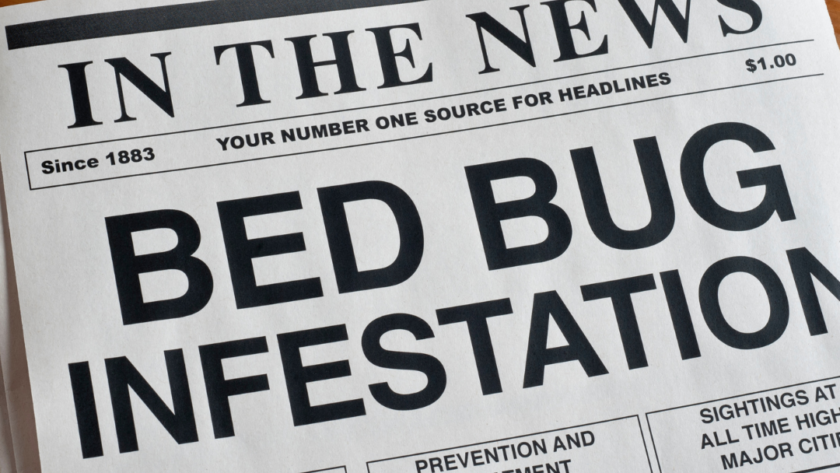Bedbugs should be the last thing you have to think about each night before you go to bed. Bedbugs are tiny, wingless, reddish-brown insects that only feed on human blood. Their bites can cause itchiness, allergic symptoms, and psychological effects.
They hide during the day in cracks and crevices of walls, floors, furniture, beds, and box springs. They are nocturnal insects. Although they can neither fly nor jump, they get into numerous homes yearly. Every year, bedbugs infest one in every five households.
You might be surprised that a messy home or leftover food does not attract bed bugs. They are actually after blood.
Where Can Bedbugs Be Found?
There is no one type of home that solely serves as a habitat for bed bugs. They can infest nearly any public location. They may also sneak into your home through luggage, clothing, previously used beds and couches, and other items.
These days, infestations can occur even in high-end apparel stores and five-star hotels. Bedbug infestations can occur in even the cleanest homes.
What Attracts Bed Bugs?
Many people hold the false belief that bed bugs prefer a dirty atmosphere or can be found on beds only; however, this is not true. It is not dirt or decay that attracts bed bugs. They can survive everywhere as long as they have access to the one resource they require to survive — Blood.
- Bed bugs can access your house through used furniture or infected clothing.
- Bedbugs can ride along in bags, backpacks, purses, and other goods on padded or soft surfaces.
- They can move between rooms in multi-unit structures like hotels and apartment buildings.
Signs Of A Bedbug Infestation Include
- Blood or minor brown stains on your pillowcases or sheets.
- Bedbug feces leave dark or rusty colors on bedclothes, mattresses, and sheets.
- An unpleasant, musty smell like coriander.
- Itchy bites that happened while you were sleeping.
- Blood stains on your bedding, either from bedbug bites or from squashing them.
- Eggshells like tiny, light poppy seeds on furniture and bedding.
Treatment and Control
Getting rid of bedbugs could be difficult since they can hide in many areas of the house. If you think you might have a bed bug infestation, it is better to call in a pest control expert.
Additionally, you can:
- Clean up your home and remove any clutter to reduce the number of hiding places for bedbugs.
- Use a cover that protects mattresses and box springs.
- Remove your bed from any furniture or walls. Mattress sides, floors, windows, boxes, and furniture should all be vacuumed.
- Put the bedspread, pillowcases, blankets, and sheets in a hot dryer for at least 30 minutes
- Seal any openings where pipes or wires enter the house and any fissures.
- Avoid placing luggage on the bed when traveling to lower the possibility of bringing bedbugs back.
Bedbugs can negatively impact a person’s quality of life by causing discomfort, embarrassment, and interrupted sleep, even though they are not known to carry any diseases.



